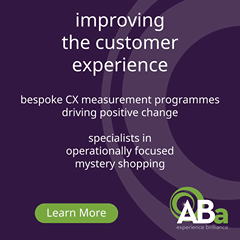How retailers can accelerate change with modern commerce technology in store
Retail increasingly centres around a single view of the customer, so unifying channels and customer experiences is fundamental to driving the success of the modern store.
To achieve this, retailers are taking pragmatic and ‘benefits-led’ approaches to modern commerce transformation in their stores by adopting best of breed solutions on cloud native, serverless, microservice and API led architectures.
The good news is that the adoption of modern commerce doesn’t have to rely on a single change programme or a replacement of everything that already works. In turn, this means that Cloud native architectures can fundamentally change the pace of software and functionality delivery.
No need to ‘rip and replace’
When adopting Cloud and building microservices in foundation architectures alongside existing systems, retailers can capture customers at the point of sale for loyalty, gift card and reward programs. It also becomes easier to deliver bespoke user journeys and experiences and to build centralised identity, access management and permissions hierarchies for distributed store systems.
A rapid shift to cloud native in the packaged software vendor market means that incumbent on-premise and SaaS vendors have re-purposed their extensive sets of feature-rich capabilities and their delivery approach (commonly DevOps). Commercial models have also radically changed with this shift, as implementation patterns standardise and the time to deliver pilots and rollouts of packed software reduces.
Retail Mobility is shaping the Customer Experience
Many newer and emerging vendors are quickly becoming recognised for creating retail platforms and components that deliver ‘experience transformation’, such as promotions, self-scan apps, mobile commerce and clienteling.
‘Retail Mobility’ brings the transaction capture to the customer in many formats, including tablet, kiosk and self-scan. This creates opportunities for assisted selling, concierge services, appointments, queue busting and improving the interaction with customers.
Modern commerce architectures can further enhance mobility strategies in stores, as they lower the hardware burden and physical back end requirement in distributed estates. This is where the financial benefits can really accelerate, as the total cost of operation can be designed to be far lighter on hardware inventory, logistics and maintenance.
Payment as the Enabler of the Customer Experience
Payment is the critical digital touchpoint to ensure a customer experience feels secure, convenient and personalised. Modern commerce architectures offer a way to move quickly and develop alongside existing solutions. When tied together with end point technologies that are flexible and agile, payment can quickly become an enabler rather than a hinderance to strong customer experiences.
When retailers adopt Cloud and build microservices to deliver payment solutions alongside existing systems, it becomes possible to provide customer booking, order and payment journeys via mobile apps, tied to these existing systems. Using flexible API-led architectures there is rapid access to APMs, digital wallets and the latest payment technologies.
Accelerating Change
When designing an operating model for the shift to modern commerce, retailers face choices in relation to creating development skills in-house, via partners, or using a blended approach. At the same time, the benefits of adopting a DevOps model include a higher rate of change and more robust release cycles.
Getting access to your own Cloud and microservices – or buying best of breed – can happen at pace and at relatively low cost with the help of the best vendor and service provider partners. There are already many fantastic examples of retailers leveraging modern commerce to enable new experiences across all customer and store staff touchpoints; how are you using modern commerce technology to accelerate your change?
Download PMC Insights paper to find out more about the driving change through Modern Commerce technology in store.














